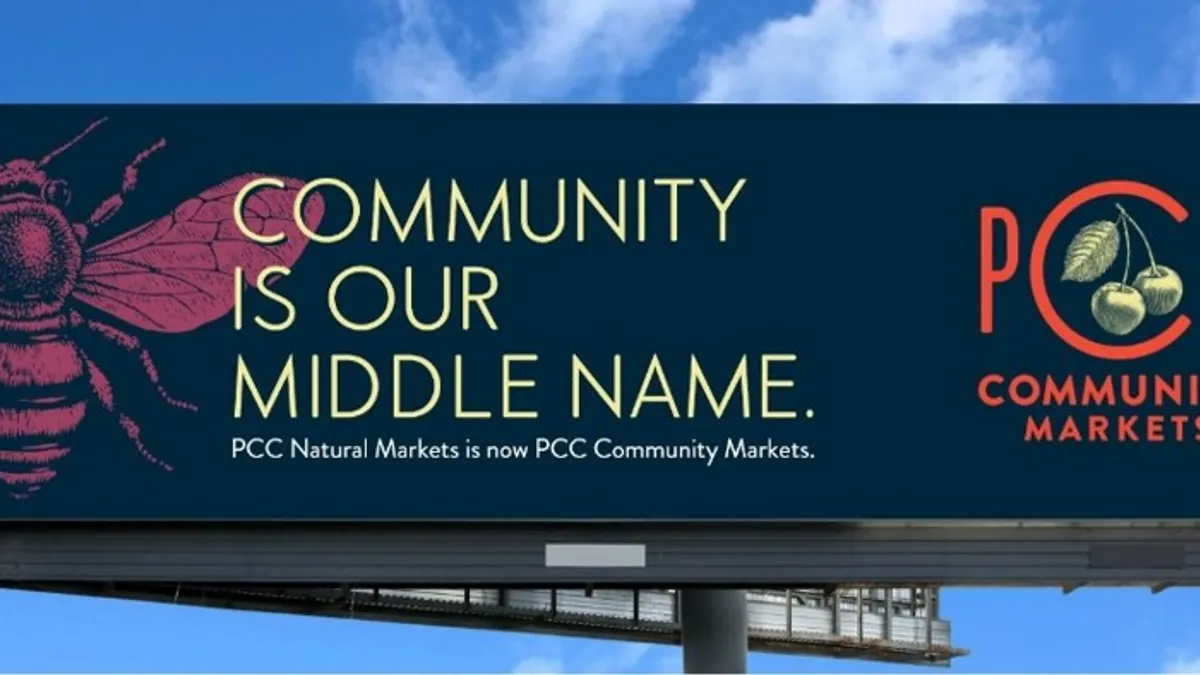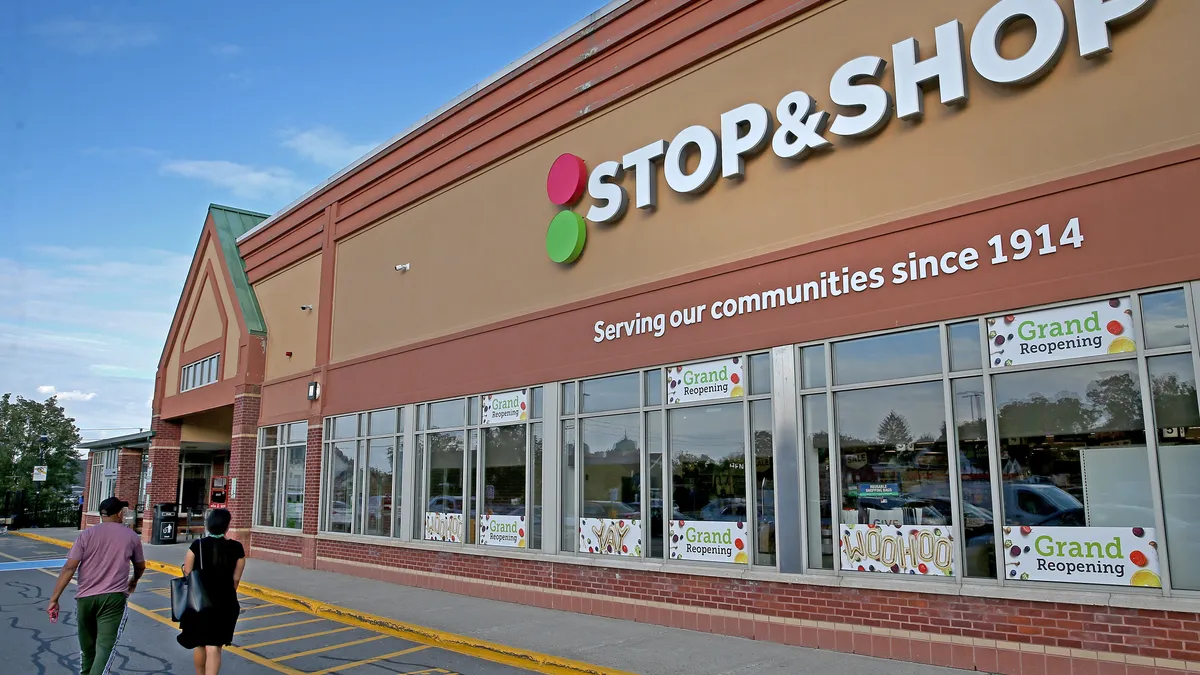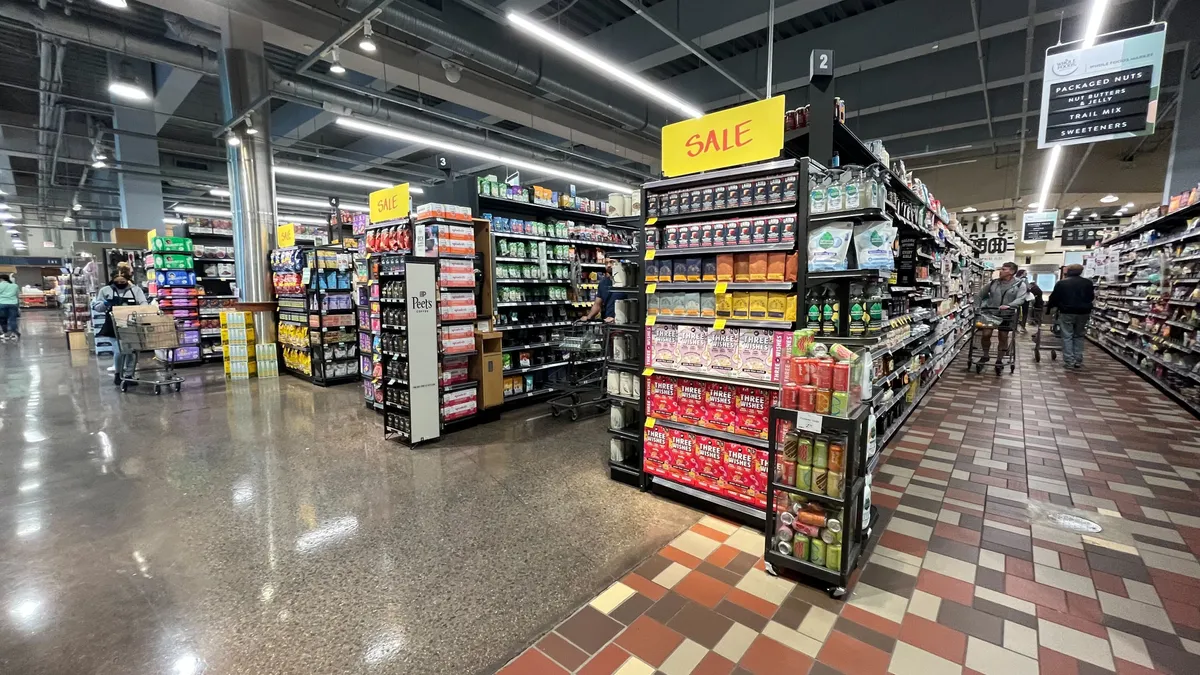Dive Brief:
- PCC Community Markets, the country’s largest natural foods cooperative, says it will replace plastic packaging in its deli department with biodegradable alternatives by 2022. The grocer says it currently uses around 5 million plastic containers in the department annually.
- The Seattle-based cooperative replaced plastic straws and utensils with compostable alternatives back in 2015. Yesterday, the city of Seattle became the first in the nation to ban single-use plastic straws in all restaurants.
- “For our sustainability goals, we chose to focus on those areas of our stores we can control, like shopping bags, straws, utensils, plates, takeaway containers and, now, packaging in our deli," Brenna Davis, PCC’s vice president of social and environmental sustainability, in a release. "Our hope is that by taking the lead, we can influence change across the region and the broader grocery and packaged goods industries.”
Dive Insight:
Ever since the backlash against bottled water and the movement to ban single-use plastic bags took hold — and even before then — it’s been clear that many consumers have an uncomfortable relationship with plastic. They recognize that it’s essential for the convenience and safety of many of the products they buy. But if its use seems particularly damaging or unnecessary, they want it gone.
Case in point: The current backlash against plastic straws. Across the country, cities and companies are facing pressure to phase out this staple of restaurant dining. Conservationists point out that straws represent a tiny fraction of the plastics Americans churn through, but the concept has proven palatable. People understand that most recycling facilities can’t sort straws, and they’ve latched on to the statistic that Americans go through 500 million plastic straws a year — a statistic that, it turns out, may not be accurate.
Companies ranging from SeaWorld to Alaska Airlines have pledged to get rid of plastic straws. In the retail and restaurant industries, Ikea has pledged to do away with straws and other single-use plastics by 2020, while McDonald’s says it will test alternatives later this year. The movement has boosted sales of paper straws and given rise to a sub-category of reusable options with clever names like The Last Straw.
If supermarkets aren’t at least evaluating this issue and surveying their customers, they should. Grocers have become key foodservice destinations in recent years, which means they go through a lot of plastic straws, utensils and containers in addition to all those packages that line their shelves. If compostable options or other creative alternatives are available — like offering filtered water in the bulk foods department — it might be worthwhile to make the switch. As the reusable bag movement proved, environmentally conscious policies can also be good marketing opportunities.
More than anything, grocers need to be aware of the anti-plastic sentiment that’s taking hold with U.S. shoppers. News of a Dutch supermarket chain’s plastic-free aisle rocketed around the web earlier this year, prompting a petition asking that Kroger do the same. That petition gained more than 100,000 signatures in a week. Consumers are also tuning in to plastic’s impact on wildlife and oceans, including the country-sized mass of plastic in the Pacific Ocean.
Going plastic-free isn’t practical for any supermarket at this point. But some operators may be able to trim their use of the material, and then tell their customers about it.











